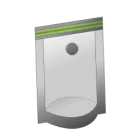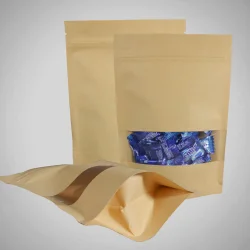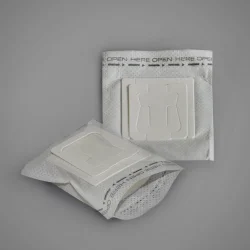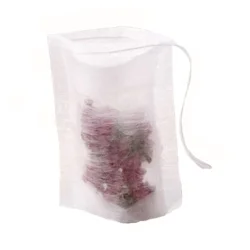Recyclable Packaging for Food: A Smart Business Move for Eco-Conscious Brands
In today’s rapidly changing world, the conversation around sustainability is louder than ever. With climate change becoming an undeniable reality, consumers are not just seeking products—they’re seeking responsible solutions. This shift in consumer behavior has put a spotlight on the packaging industry, especially in food. From single-use plastics to unsustainable materials, the impact of packaging on the environment is undeniable. As a result, recyclable packaging for food has emerged as a vital solution for businesses aiming to reduce their environmental footprint while also appealing to eco-conscious consumers.
Food brands that adopt recyclable packaging are taking a step toward not only preserving the planet but also building stronger connections with their customers. This move is no longer optional—it’s essential for brands who want to stay relevant and competitive in the modern marketplace.
Why Recyclable Packaging is Crucial for the Food Industry
Recyclable packaging for food offers a sustainable alternative to the traditional methods that often end up in landfills or oceans. Consumers are increasingly aware of the role packaging plays in pollution and waste, and they want brands to make the first move toward solutions. It's no longer just about serving food in a convenient way—it’s about protecting the future of the planet, too.
But for brands, the decision to switch to recyclable packaging isn’t just about doing the right thing for the environment. It's a smart business move that can create long-term value in a few key ways.
1. Meeting Growing Consumer Demand for Sustainability
Research consistently shows that consumers, particularly millennials and Gen Z, are more likely to support brands that align with their values. A sustainable packaging initiative not only taps into this demand but also enhances the brand’s image. Recyclable packaging for food is a tangible way to show commitment to environmental responsibility, and it makes a statement about the company’s values. This resonates with customers who are already prioritizing environmentally friendly grocery bags and other eco-conscious shopping habits.
For food companies, adopting recyclable packaging sends a clear message: "We care about our planet, and we care about your future." The result? Enhanced brand loyalty, increased trust, and a stronger relationship with your target audience.
2. Reducing Your Brand’s Carbon Footprint
The environmental toll of traditional packaging, such as plastic and non-recyclable materials, has long been a topic of concern. These materials not only contribute to waste accumulation but also require substantial energy and resources to produce, further exacerbating a brand's carbon footprint.
Switching to recyclable packaging, however, can significantly reduce your environmental impact. Packaging materials that are easily recyclable or made from recycled content are more resource-efficient and contribute to a circular economy. Plus, the reduction in waste can result in fewer landfill deposits, decreasing overall environmental harm.
For businesses with large-scale packaging needs, like food producers or brands that offer ready-to-eat meals, choosing recyclable packaging options like paper, aluminum, or plant-based materials helps lower the carbon footprint of production, transportation, and disposal.
3. Cost Efficiency and Long-Term Savings
It’s a common misconception that sustainable packaging is always more expensive. While the initial cost of adopting recyclable materials may seem higher than traditional options, it’s important to look at the bigger picture. Wholesale eco-packaging for online stores and large-scale packaging solutions have become more affordable as demand increases and production scales.
In addition, many businesses find that transitioning to recyclable packaging helps reduce waste disposal fees. A decrease in non-recyclable materials means less money spent on landfill disposal, potentially offsetting the cost of purchasing sustainable alternatives. Long-term, these savings can add up, making recyclable packaging an investment that pays dividends.
4. Enhancing Brand Image and Consumer Loyalty
The rise of sustainability has introduced a new consumer loyalty factor—transparency. Brands that are open about their sustainability practices and packaging choices are more likely to earn the respect and trust of their audience. Recyclable packaging for food allows businesses to showcase their eco-friendly practices, not only in their marketing materials but through direct action.
Brands that use recyclable or compostable packaging are often perceived as forward-thinking and socially responsible, which encourages consumer loyalty. Being transparent about your sustainable efforts gives customers an emotional reason to stick with your brand, fostering a deeper connection.
5. Regulatory Compliance and Staying Ahead of Legislation
As governments around the world tighten regulations on packaging waste and plastic use, companies that proactively adopt recyclable packaging are positioning themselves ahead of the curve. Legislation aimed at reducing plastic waste is becoming more common, and food businesses that have already made the switch to recyclable solutions will find themselves better prepared for changes in the law.
For example, the European Union and several U.S. states have introduced laws that mandate the reduction of plastic packaging. By adopting recyclable or biodegradable packaging solutions today, brands ensure they remain compliant and avoid potential fines in the future.
6. Aligning with Other Industries Toward a Circular Economy
Sustainability isn’t just a buzzword—it’s becoming a necessity across industries. Businesses in various sectors are leaning toward eco-friendly practices, including packaging. Take the pharmaceutical industry, for example. Suppliers of products such as Pharmaceutical Zip Lock Bags Wholesale are already shifting towards recyclable, reusable, and biodegradable options. Similarly, brands in the food industry can collaborate with suppliers and partners to create a more sustainable supply chain by choosing recyclable materials.
By joining the movement, food brands contribute to the creation of a circular economy—a system where products are reused, recycled, and repurposed, leading to less waste and more sustainable production.
Conclusion: A Smart Business Decision for the Future
In a world where sustainability matters more than ever, food brands that embrace recyclable packaging are taking an important step toward aligning with consumer values, reducing their environmental footprint, and future-proofing their business. Whether it’s choosing recyclable materials for their products or investing in sustainable packaging solutions like custom eco-pouches for retail use, these brands are not only building stronger connections with customers—they’re also leading the way in the fight against packaging waste.
For businesses that want to stay competitive, recyclable packaging for food is no longer a mere option—it's a necessary investment that reflects both environmental consciousness and long-term profitability. The path forward is clear: businesses that adapt to the changing demands of eco-conscious consumers will not only thrive—they’ll set the standard for a greener, more sustainable future.













